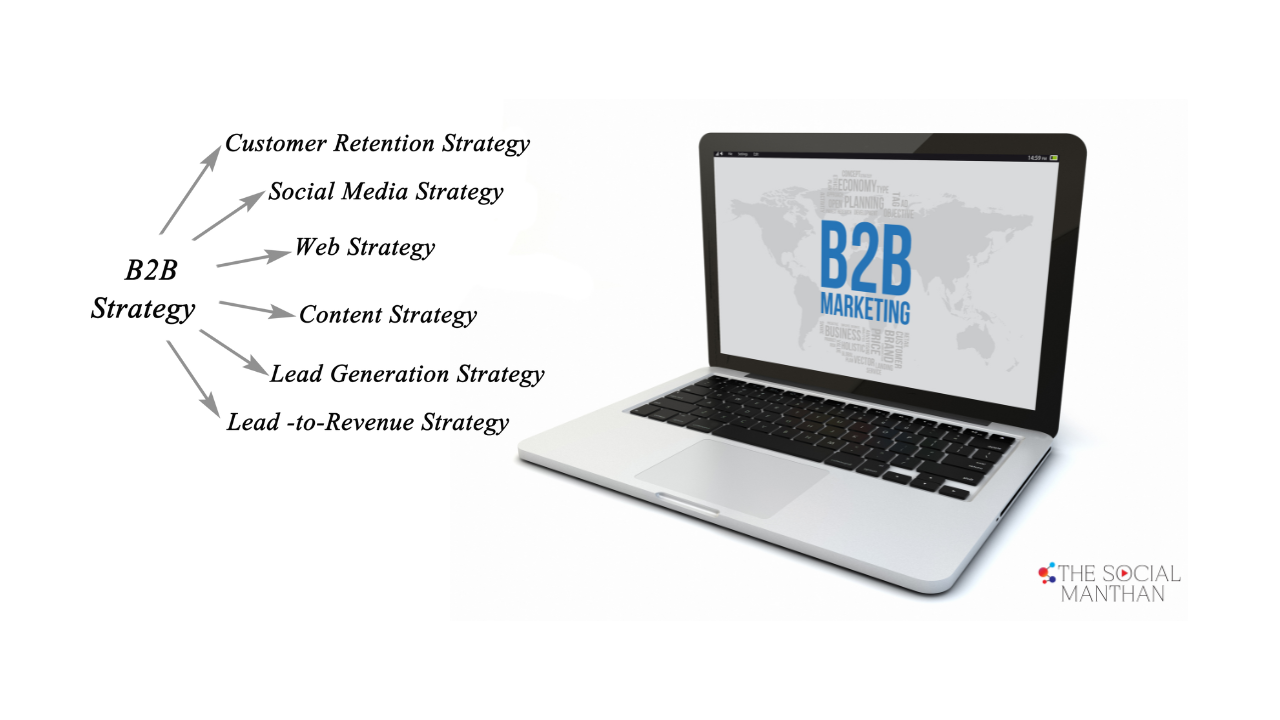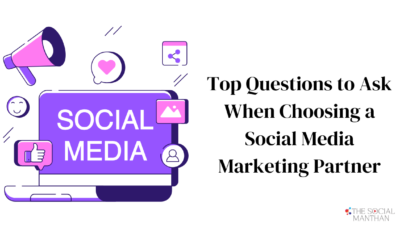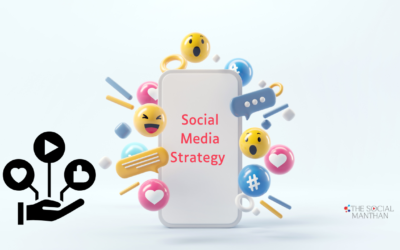Social media marketing is often associated with consumer-focused brands, but it’s just as critical for B2B companies. In today’s digital landscape, social media platforms provide B2B companies with powerful tools to build brand awareness, nurture leads, and establish thought leadership. However, the approach to social media marketing for B2B is different from B2C. To succeed, B2B marketers need to implement strategies tailored to the unique needs and challenges of the business audience.
In this article, we’ll explore effective social media marketing strategies for B2B companies that deliver tangible results.
1. Understand Your Target Audience and Platform Preferences
The first step in any successful B2B social media strategy is understanding your target audience. Unlike B2C, where the focus might be on a broader consumer base, B2B marketing typically targets specific industries, decision-makers, and professionals. Knowing where your audience spends their time online is crucial for selecting the right social media platforms.
Why It Matters:
- Precision Targeting: Tailoring your strategy to the specific needs of your audience ensures your efforts are more effective and impactful.
- Platform Efficiency: Not all social media platforms are created equal for B2B. LinkedIn, for example, is the go-to platform for B2B marketing due to its professional network.
Action Steps:
- Create Detailed Buyer Personas: Develop in-depth profiles of your ideal clients, including their job roles, industries, challenges, and preferred content types.
- Research Platform Usage: Identify which platforms your target audience uses most frequently. LinkedIn, Twitter, and Facebook are popular for B2B, but niche platforms like industry-specific forums or groups can also be valuable.
- Tailor Content for Each Platform: Different platforms require different approaches. LinkedIn may call for more in-depth articles or thought leadership pieces, while Twitter might be better suited for quick insights or updates.
2. Build Thought Leadership Through High-Quality Content
In the B2B space, establishing thought leadership is key to building trust and credibility. By sharing high-quality content that showcases your expertise and industry knowledge, you can position your company as a leader in your field.
Why It Matters:
- Credibility: Thought leadership content helps build your reputation as an authority in your industry, making it more likely that other businesses will turn to you for solutions.
- Lead Nurturing: Consistently sharing valuable content keeps your audience engaged and nurtures them through the buyer’s journey.
Action Steps:
- Share Insightful Blog Posts: Regularly publish and share blog posts on industry trends, best practices, and case studies that provide value to your audience.
- Host Webinars and Live Q&A Sessions: Use platforms like LinkedIn Live to host webinars or live Q&A sessions, offering expert insights and answering audience questions in real-time.
- Create Whitepapers and eBooks: Offer in-depth resources that delve into complex industry issues, available as gated content to capture leads.
3. Leverage LinkedIn for Networking and Lead Generation
LinkedIn is the premier platform for B2B social media marketing. It’s where professionals go to network, share industry news, and discover new business opportunities. Leveraging LinkedIn effectively can significantly boost your brand’s visibility and lead generation efforts.
Why It Matters:
- Professional Audience: LinkedIn’s user base consists mainly of professionals, making it an ideal platform for reaching decision-makers and influencers in your target industries.
- Lead Generation Tools: LinkedIn offers advanced targeting options and lead generation tools, such as LinkedIn Ads and Sponsored Content, to help you connect with potential clients.
Action Steps:
- Optimize Your Company Page: Ensure your LinkedIn Company Page is fully optimized with a compelling description, relevant keywords, and regularly updated content.
- Engage with Groups: Join and participate in LinkedIn Groups related to your industry to build connections and establish your brand as an active participant in the community.
- Use LinkedIn Ads: Invest in LinkedIn’s advertising options, such as Sponsored Content and InMail, to target specific professionals and industries with tailored messages.
4. Utilize Employee Advocacy to Amplify Your Reach
Employee advocacy involves leveraging your employees’ social media networks to increase your brand’s reach and credibility. When employees share company content, it often has a greater impact than content shared from the company’s official pages.
Why It Matters:
- Increased Reach: Employees collectively have a larger and more diverse network than your brand alone, allowing you to reach new audiences.
- Authenticity: Content shared by employees is often perceived as more authentic and trustworthy than branded content, increasing engagement.
Action Steps:
- Encourage Employee Participation: Motivate your employees to share company content by providing them with easy-to-share posts and celebrating their contributions.
- Provide Training and Resources: Offer training sessions to help employees understand the importance of social media and how to use it effectively for professional purposes.
- Recognize and Reward Advocacy: Implement a recognition or rewards program to incentivize employees who actively participate in sharing and promoting your content.
5. Focus on Building Relationships, Not Just Selling
B2B sales cycles are often longer and more complex than B2C, making relationship-building a critical component of your social media strategy. Rather than pushing for a sale immediately, focus on nurturing relationships with potential clients by providing value and fostering trust over time.
Why It Matters:
- Long-Term Success: Building strong relationships leads to more meaningful connections, increased loyalty, and higher lifetime customer value.
- Trust and Loyalty: Regularly engaging with your audience in a meaningful way helps build trust and fosters long-term business relationships.
Action Steps:
- Engage in Conversations: Actively participate in conversations within your industry by commenting on posts, responding to inquiries, and sharing insights.
- Offer Valuable Content: Share content that addresses your audience’s pain points and provides solutions, rather than focusing solely on promoting your products or services.
- Personalize Your Outreach: When reaching out to potential clients on social media, personalize your messages based on their interests, challenges, and industry needs.
6. Measure and Optimize Your Performance
To ensure your social media marketing efforts are delivering results, it’s essential to track and analyze your performance regularly. By measuring key metrics, you can gain insights into what’s working, what’s not, and how to optimize your strategy for better results.
Why It Matters:
- Data-Driven Decisions: Analyzing performance data allows you to make informed decisions and continuously improve your social media strategy.
- ROI Optimization: Tracking the ROI of your social media efforts ensures you’re investing your time and resources in the most effective channels.
Action Steps:
- Set Clear KPIs: Define key performance indicators (KPIs) based on your goals, such as engagement rate, lead generation, or website traffic from social media.
- Use Analytics Tools: Leverage tools like LinkedIn Analytics, Google Analytics, and social media management platforms to track your performance.
- Refine Your Strategy: Regularly review your performance data and make adjustments to your content, posting schedule, and targeting to optimize results.
Conclusion
Social media marketing for B2B requires a strategic approach that focuses on building relationships, establishing thought leadership, and delivering value to your audience. By understanding your target audience, leveraging the right platforms, creating high-quality content, and continuously measuring your performance, you can develop a social media strategy that drives real results for your business.
Remember, B2B social media marketing is about more than just generating leads—it’s about building a strong, trustworthy brand that stands out in your industry. Implement these strategies, and watch your social media efforts transform into a powerful engine for growth.






